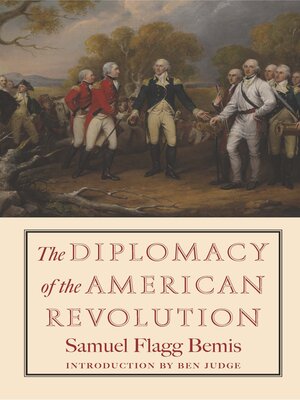
Sign up to save your library
With an OverDrive account, you can save your favorite libraries for at-a-glance information about availability. Find out more about OverDrive accounts.
Find this title in Libby, the library reading app by OverDrive.



Search for a digital library with this title
Title found at these libraries:
| Library Name | Distance |
|---|---|
| Loading... |
"To the superficial observer there would seem never to have been an age less propitious for the birth of a new nation. The tendency of the times was altogether for the aggrandizement of big states and the consolidation of their territory at the expense of the little ones, for the extinction of the weaker nations and governments rather than for the creation of new ones. Nevertheless it was this bitter cut-throat international rivalry which was to make American independence possible."
On April 15th, 1783, the Articles of Peace between the United States and Great Britain went into effect proclaiming that "His Britannic Majesty acknowledges the United States...to be free Sovereign and independent States." That recognition, the origins of which began almost seven years earlier in Philadelphia, the fate of which was uncertain at Valley Forge and ultimately vindicated at Yorktown, represented a monumental achievement for the new American nation. It also, as Samuel Flagg Bemis shows us, marked the end of a world war.
This book explains the ambitions and interests of European powers during the American Revolution. France's search for revenge against Britain after the French and Indian War, Spain's attempt to retake Gibraltar, the complicated trade interests of the Netherlands and Russia, Austria's fears of a two-front war – each of these saw America's struggle for independence as an event that affected their own strategies. And, as Bemis shows us, it is through that prism that we should consider the actions of those who supported America and Great Britain.







